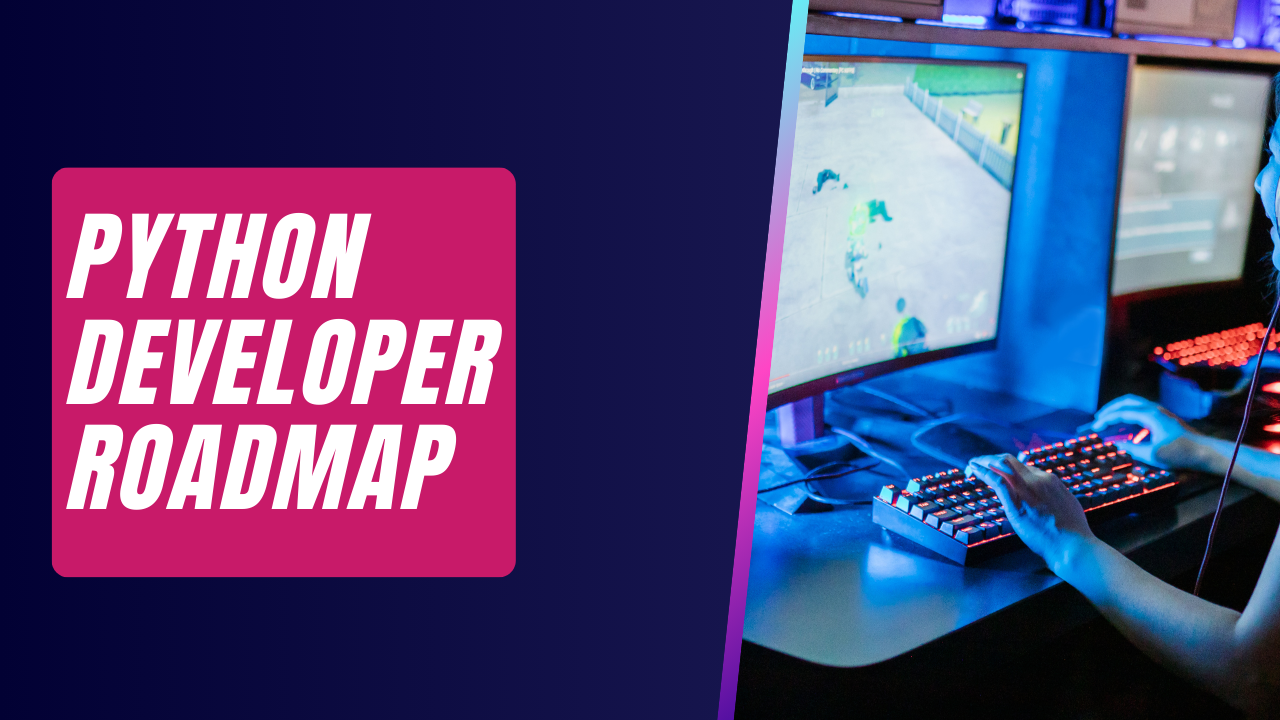Python Developer Roadmap

Python remains one of the most indispensable and adaptive programming languages in 2025, facilitating advancements across domains such as web development, artificial intelligence, and distributed systems.
This roadmap delineates a rigorous, structured pathway toward mastering Python, encompassing fundamental and advanced technical competencies, essential frameworks, and industry best practices critical for excelling in modern technological ecosystems.
Core Python Proficiency
A sophisticated comprehension of Python’s syntactic constructs and core paradigms is imperative for engineering complex applications. The following areas are foundational:
Data Structures and Algorithmic Efficiency
- Mastery of core data structures—lists, dictionaries, tuples, sets—and their computational complexities.
# Optimized Binary Search Implementation
import bisect
def binary_search(arr, target):
index = bisect.bisect_left(arr, target)
return index if index < len(arr) and arr[index] == target else -1
- Implementing fundamental sorting algorithms such as QuickSort and MergeSort, along with graph traversal mechanisms.
- Employing algorithmic analysis techniques such as amortized complexity and asymptotic notations.
Object-Oriented Paradigms
- Deep utilization of abstraction, encapsulation, polymorphism, and inheritance.
# Advanced Object-Oriented Design: Factory Method
from abc import ABC, abstractmethod
class Vehicle(ABC):
@abstractmethod
def drive(self):
pass
class Car(Vehicle):
def drive(self):
return "Driving a car."
def vehicle_factory(vehicle_type):
if vehicle_type == "car":
return Car()
raise ValueError("Unknown vehicle type")
- Leveraging metaclasses for dynamic class construction and runtime behavior modification.
Advanced Python Constructs
- Mastery of context managers and resource optimization strategies.
# Efficient Resource Management with Context Managers
class FileHandler:
def __init__(self, filename, mode):
self.file = open(filename, mode)
def __enter__(self):
return self.file
def __exit__(self, exc_type, exc_val, exc_tb):
self.file.close()
- Implementation of concurrency using multithreading, multiprocessing, and asynchronous paradigms.
Code Quality and Maintainability
- Adhering to PEP8 and employing static analysis tools such as
pylintandmypy. - Advanced debugging techniques utilizing
pdband structured logging frameworks.
Web Development and Frameworks
Python’s extensive web development ecosystem supports robust, scalable applications:
| Framework | Primary Use Case | Notable Features |
|---|---|---|
| Django | Enterprise Web Applications | ORM, Middleware, Admin Panel |
| Flask | Microservices and APIs | Lightweight, Highly Extensible |
| FastAPI | High-Performance APIs | Asynchronous Processing, Auto-Documentation |
API Development
- Designing RESTful APIs with secure authentication protocols (JWT, OAuth2).
# FastAPI Example with JWT Authentication
from fastapi import FastAPI, Depends
from fastapi.security import OAuth2PasswordBearer
app = FastAPI()
oauth2_scheme = OAuth2PasswordBearer(tokenUrl="token")
@app.get("/secure-data")
def secure_endpoint(token: str = Depends(oauth2_scheme)):
return {"message": "Authenticated Data"}
- Integration of asynchronous request handling with ASGI servers.
Frontend Interfacing
- RESTful API consumption and server-side rendering with Jinja2 templates.
- WebSocket implementation for real-time communication.
Database Management and ORMs
| Database | Python Tooling | Use Case |
|---|---|---|
| PostgreSQL | SQLAlchemy, Django ORM | Relational Data Integrity |
| MongoDB | PyMongo, MongoEngine | NoSQL Scalable Storage |
| Redis | redis-py | Caching and Message Queues |
Advanced ORM Techniques
- Optimization of database queries with indexing and caching strategies.
- Schema migrations utilizing Alembic for efficient data evolution.
# SQLAlchemy ORM Example with Indexing
from sqlalchemy import create_engine, Column, Integer, String, Index
from sqlalchemy.ext.declarative import declarative_base
from sqlalchemy.orm import sessionmaker
Base = declarative_base()
engine = create_engine("sqlite:///app.db")
session = sessionmaker(bind=engine)()
class User(Base):
__tablename__ = "users"
id = Column(Integer, primary_key=True)
name = Column(String, index=True)
Base.metadata.create_all(engine)
DevOps and Cloud Integration
Infrastructure Management
- Containerization strategies using Docker and Kubernetes for orchestrating scalable applications.
- CI/CD pipelines leveraging GitHub Actions and Jenkins for automated deployments.
Cloud-Native Deployment
- Serverless application models with AWS Lambda and Google Cloud Functions.
- API Gateway integration for seamless microservices architectures.
# AWS Lambda Function Handler
import json
def lambda_handler(event, context):
return {
'statusCode': 200,
'body': json.dumps({'message': 'Serverless function executed successfully'})
}
This roadmap provides an exhaustive guide to mastering Python’s multifaceted ecosystem, ensuring proficiency in both foundational principles and advanced specializations.
Through hands-on project development and engagement with Python’s active community, developers can establish expertise in backend architecture, data engineering, and machine learning applications.
Remaining updated with Python’s evolving standards and best practices is imperative for continuous professional growth.